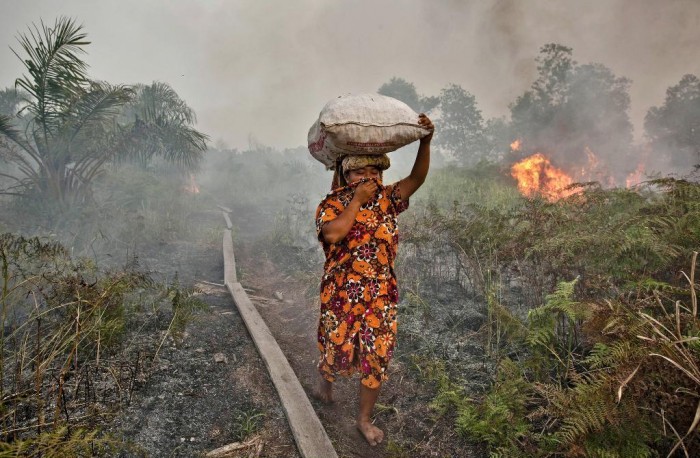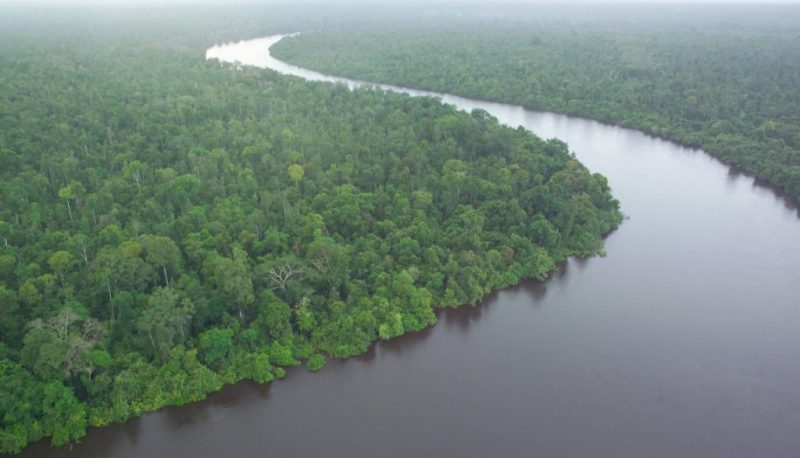Various Indonesian and international eco-groups want one of the biggest paper mills in the world to stop draining peatlands.
Organizations called out Asia Pulp and Paper (APP), pushing it to avoid converting hectares of peatlands in the archipelago into industrial agriculture for pulpwood production. Their argument is that doing so only worsens the annual haze and forest fire crisis.
Peatlands are areas of land filled with partially decayed vegetation that is accumulated in a water-saturated environment (peats or bogs). Because of its chemical nature, the chances of this material catching fire are high. Through the years, companies like APP have drained swamps in Indonesia to convert the land into acres of acacia for paper or palm oil production.
Apart from stopping peatlands conversion, the groups including Greenpeace and NGO Jikalahari also want the company to close their existing converted swamps, and reintroduce water to the area. “Restoring peatlands will generate economic growth and environmental security over the long term,” said NGO Jikalahari coordinator Woro Supartinah.
See: Indonesia to Protect Peatlands and Fight Climate Change
However, doing this would mean serious business disruption for APP. The US$3 billion paper mill is believed to own no less than 600,000 hectares of peatlands. It may also hurt the company’s plans to boost sales and expand to other markets in Southeast Asia, the Middle East and Africa. Two of its controlled companies including Indiah Kiat Pulp & Paper, which manages pulp production, are publicly listed.
The paper mill has yet to issue an official comment about the eco-groups’ demands, but in a recent sit-down with Arun Sudhaman for Holmes Report (a self-proclaimed PR and intelligence agency), APP sustainability head Aida Greenbury said the company’s long-standing decision to stop deforestation is ‘challenging’ due to a missing blueprint for zero deforestation, landscape approach and community involvement. She also said, “Engaging the government is key, especially the provincial government, and showing why this approach is good for the populace.”
When asked about criticisms from green groups, she cited Greenpeace as one of the company’s biggest critics, but the comments have been ‘constructive.’ Besides APP, the eco-group is pushing international companies like Colgate-Palmolive and Procter & Gamble to end forest destruction.
Image credits: govinsider.asia, firstpeoples.org




